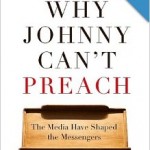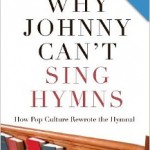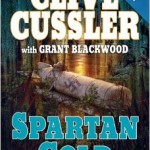I love to read. By God’s grace I am a pretty fast reader; I usually read a few books each week. I find it helpful to summarize my thoughts on each book and I offer those thoughts in hopes that you will be encouraged to either read or pass over the given title.
 Why Johnny Can’t Preach: The Media Have Shaped the Messengers by T. David Gordon. Gordon wrote this book while completing “fairly severe” treatment for stage III cancer. He thought, “Before I die, I must express my opinion on this subject.” The subject is what Gordon calls “an ordinarily impoverished pulpit.” He believes “the average Christian family in the average pew in the average church on the average Sunday” suffers from less than mediocre preaching. The book’s polemical tone will be off-putting to some, but Gordon’s arguments are unique and merit attention. As a media ecologist, Gordon believes the pulpit’s decline is linked to our society’s evolution from being a language dominated culture to an image dominated culture. Fewer and fewer pastors read carefully and write critically, and are therefore ill-equipped to adequately deal with linguistic realities of preaching. Not every reader will agree with Gordon’s prognosis of modern preaching, but his argument needs to be heard.
Why Johnny Can’t Preach: The Media Have Shaped the Messengers by T. David Gordon. Gordon wrote this book while completing “fairly severe” treatment for stage III cancer. He thought, “Before I die, I must express my opinion on this subject.” The subject is what Gordon calls “an ordinarily impoverished pulpit.” He believes “the average Christian family in the average pew in the average church on the average Sunday” suffers from less than mediocre preaching. The book’s polemical tone will be off-putting to some, but Gordon’s arguments are unique and merit attention. As a media ecologist, Gordon believes the pulpit’s decline is linked to our society’s evolution from being a language dominated culture to an image dominated culture. Fewer and fewer pastors read carefully and write critically, and are therefore ill-equipped to adequately deal with linguistic realities of preaching. Not every reader will agree with Gordon’s prognosis of modern preaching, but his argument needs to be heard.
 Why Johnny Can’t Sing Hymns: How Pop Culture Rewrote the Hymnal by T. David Gordon. Gordon followed his book on preaching with one on worship music. The main thesis of this work is that contemporaneity has become the primary criteria for deciding what song is sung in an average worship service. I think Gordon largely succeeds in showing how contemporaneity, alongside the ubiquity of pop music, has rendered many contemporary liturgies inert and transcendent-less. This book is intentionally more descriptive than prescriptive, which is helpful as it reduces the bite of Gordon’s often polemical tone. Chapter 12 on “Strategic Issues” is worth every pastor’s consideration. Much like my final thought on Why Johnny Can’t Preach, not every reader will agree with the thesis of Why Johnny Can’t Sing Hymns (contemporaneity being detrimental to biblical liturgy), but the argument is sufficiently cogent to merit attention.
Why Johnny Can’t Sing Hymns: How Pop Culture Rewrote the Hymnal by T. David Gordon. Gordon followed his book on preaching with one on worship music. The main thesis of this work is that contemporaneity has become the primary criteria for deciding what song is sung in an average worship service. I think Gordon largely succeeds in showing how contemporaneity, alongside the ubiquity of pop music, has rendered many contemporary liturgies inert and transcendent-less. This book is intentionally more descriptive than prescriptive, which is helpful as it reduces the bite of Gordon’s often polemical tone. Chapter 12 on “Strategic Issues” is worth every pastor’s consideration. Much like my final thought on Why Johnny Can’t Preach, not every reader will agree with the thesis of Why Johnny Can’t Sing Hymns (contemporaneity being detrimental to biblical liturgy), but the argument is sufficiently cogent to merit attention.
 The Masculine Mandate: God’s Calling to Men by Rick Phillips. I reread this book in preparation for a monthly men’s meeting we have at our church and I was reminded afresh why TMM is my favorite book on biblical masculinity. Phillips sees Genesis 2:15 as paradigmatic for godly masculinity; “The LORD God took the man and put him in the garden of Eden to work it and keep it.” These two verbs (work and keep) are subsequently expounded and applied to virtually every area of a man’s life. Phillips’ past career in the military ensures the book is sufficiently strong in tone, and he successfully corrects the errors of John Eldridge’s Wild at Heart in a mere two pages. His chapters on marriage and parenting are the best, filled with lifelong wisdom.
The Masculine Mandate: God’s Calling to Men by Rick Phillips. I reread this book in preparation for a monthly men’s meeting we have at our church and I was reminded afresh why TMM is my favorite book on biblical masculinity. Phillips sees Genesis 2:15 as paradigmatic for godly masculinity; “The LORD God took the man and put him in the garden of Eden to work it and keep it.” These two verbs (work and keep) are subsequently expounded and applied to virtually every area of a man’s life. Phillips’ past career in the military ensures the book is sufficiently strong in tone, and he successfully corrects the errors of John Eldridge’s Wild at Heart in a mere two pages. His chapters on marriage and parenting are the best, filled with lifelong wisdom.
 Spartan Gold by Clive Cussler. For several years a friend has told me to read Cussler and it wasn’t until last week that I actually got around to it. Spartan Gold, the first volume in Cussler’s “Fargot Adventure” series, is a breezy collision of Indiana Jones and National Treasure. The plot is predictable, but the pages still turn quickly. If formulaic fiction is your cup of tea, Cussler is right up your alley.
Spartan Gold by Clive Cussler. For several years a friend has told me to read Cussler and it wasn’t until last week that I actually got around to it. Spartan Gold, the first volume in Cussler’s “Fargot Adventure” series, is a breezy collision of Indiana Jones and National Treasure. The plot is predictable, but the pages still turn quickly. If formulaic fiction is your cup of tea, Cussler is right up your alley.
